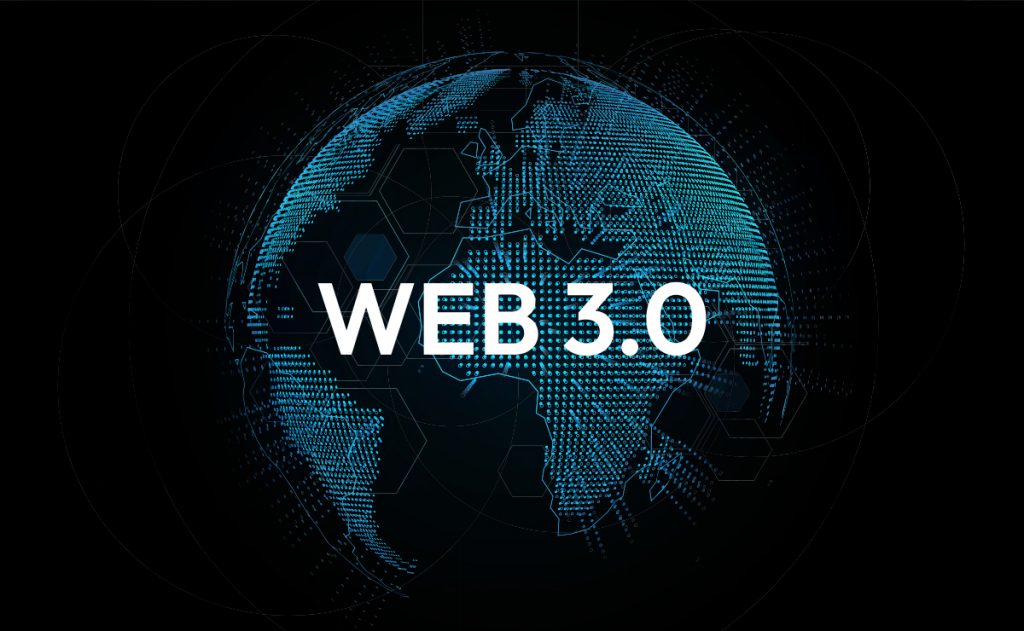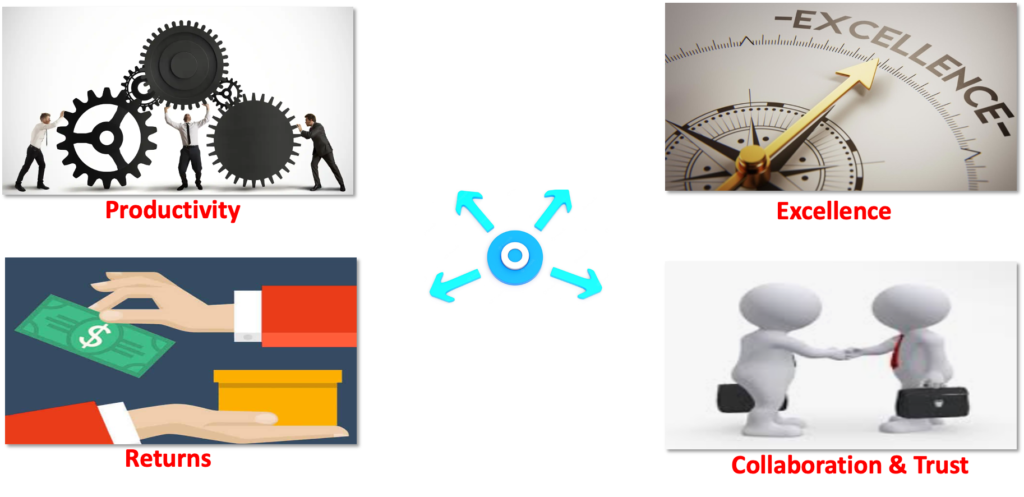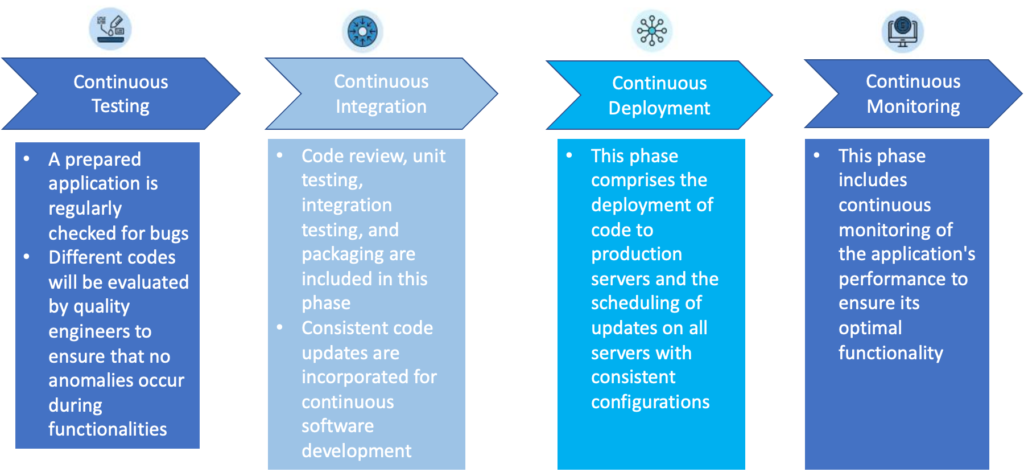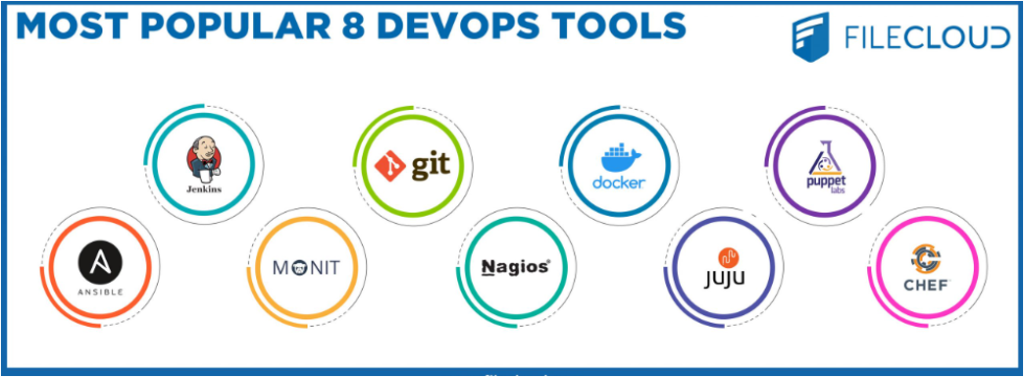Web 3.0 : The future of Fintech Under Web3.0
The question you probably have is, “What is Web 3.0 technology?” Here’s an explanation of “definition Web 3.0”
Web 3.0 Definition
Web 3.0 is also referred to as Internet 3.0, and it normally refers to the third generation of Internet technology, a technology that enhances interaction between devices and users. This intelligence also exists in interactions between software, not simply between users and websites. There is also more than that. Numerous factors contribute to the differences between Web 2.0 and Web 3.0.

Web 3.0: Key features
- Web 3.0 is open and available everywhere. Openness is one of the fundamental characteristics of the internet of the next generation, which is powered by blockchain. Transparency and security are ensured by public blockchains.
- Web 3.0 is unrestricted. The usage of the blockchain reduces the need for external authorizations for data transfers. Users can interact easily with each other without restrictions.
- Web 3.0 is trust less. The data stored on the blockchain is unchangeable and censorship-proof. Smart contracts and other applicable protocols store the rules for transaction execution. Additionally, users are not required to submit their network-related actions to any centralised authorities. As a result, it will provide greater transaction security and reduce the likelihood of rules being implemented in a biased manner.
Web 3.0 technology in fintech
What about the challenges for the fintech industry in the new digital era?
Without challenges, there would be no opportunity to evolve. In order for fintech companies to succeed in Web 3.0, they need to overcome the following obstacles:
‘The new technologies have many benefits, but they also pose some challenges.
- Firstly, it is still early days for Decentralized Finance. In other words, there are still some bugs and glitches that need to be fixed.
- Secondly, In blockchain technology, there is a constant evolution. Therefore, financial systems and platforms can change quickly, unexpectedly affecting businesses and entrepreneurs.
- Thirdly, Decentralised Finance is a global system, and therefore it is not subject to the same rules and regulations as the traditional financial system. In the conventional financial system, banks are required to follow KYC (know your customer) and AML (anti-money laundering) regulations. It is important to emphasise, however, that these regulations do not necessarily apply in the DeFi system, according to the founder of CAPEX.com.
Benefits of Web 3.0 for the FinTech world:
Our decentralized operating model and Web 3.0 are closely aligned, resulting in the following top benefits:
- Trustworthiness Web 3.0 will provide users simpler and more user-friendly onboarding process. As a result of Web 3.0’s use of decentralized networks, end-users will have complete ownership and control over their online information and services
- Accessibility A major advantage of Web 3.0 is that the user will have access to information from anywhere.
- Better Improved Customer Journey A better understanding of customer needs and expectations will be possible through Web 3.0 for FinTech organizations
- Easy and Faster Transactions FinTech companies across the world will benefit from real-time, secure, and transparent transactions facilitated by artificial intelligence, IoT, and blockchain technology. Powered by automation and secured peer-to-peer transactions, Web 3.0 will enable businesses to boost their efficiency for digital payments and digital lending.
- Security As data is stored on distributed nodes as a result of decentralization, Web 3.0 will dramatically reduce the suspensions and denials of distributed services. As a result, FinTech organizations will be able to reduce the cost of managing seizures or server failures.
Top Web 3.0 applications in 2022
- Wolfram Alpha Wolfram Alpha is one of the top Web 3.0 applications in 2022 as a product from Wolfram Research .It is a computational knowledge engine and answer engine developed by Wolfram Research. It answers factual queries directly by computing the answer from externally sourced data.
- Siri The semantic internet is also used in Apple’s Siri. Using voice recognition software, it creates a technological wave .Voice recognition software is considered to be a key element of Web 3.0.
- Meta is one of the top social media network as well as Web 3.0 applications. It has been continuously inviting people to create new societies on Web 3.0. It to boost customer interaction as well as customer engagement on the social media platform.
- 3D graphics Among the top Web 3.0 applications is 3D graphics, which is used extensively and rapidly on a wide range of websites and services.
Combining 3D graphics with augmented reality/virtual reality technologies produces immersive results related to various real-life environments, places, and objects.
Conclusion:
Today, businesses worldwide are in desperate need of digital lending technology partners as FinTech matures rapidly. Using Web 3.0 to unleash innovation, next-generation businesses need a trusted partner who knows the state of FinTech market.
To differentiate your business in this highly completive world partnerships like these facilitate an adequate opportunity .
DevOps: What is it, and what do you need to know?
“DevOps is a collection of practices that combine software development (Dev) and IT operations” (Ops). It aims to reduce the duration of the systems development life cycle and to provide continuous delivery of high-quality software. DevOps is complementary to Agile software development; a number of DevOps principles were derived from Agile methodology.”
In other words we can say – Software development and IT teams’ processes are automated and integrated through the use of a set of practices, tools, and cultural principles known as DevOps. In addition to technology automation, it places a strong emphasis on team empowerment.
Benefits of DevOps

Different phases of Devops

DevOps Engineer & Skills
- A DevOps engineer designs and maintains the software development pipeline. Additionally, he ensures that software is deployed correctly and without issues.
- A DevOps engineer can automate processes and write scripts for automation.
- Additionally, he understands how to keep the entire infrastructure secure and robust.
- A DevOps engineer possesses exceptional communication skills that allow him to convey ideas and facilitate the
exchange of information between teams.
- A DevOps engineer’s daily responsibilities include ensuring the cloud’s scaling requirements are met optimization, permissions management, and documentation.
A DevOps engineer possesses a wealth of knowledge, including:
•Knowledge of Linux and Windows operating systems
•Database and server technology
•Orchestration and cloud technology
•Source control
•Continuous integration and deployment
•Automation and scripting
•Networking and excellent communication
DevOps Tools

The popular DevOps tools are as follow:
•Jenkins: This is an open-source server for automation used as a tool for continuous integration. It allows us to build, deploy, and run automated tests.
•GIT: It is a version control tool that tracks file and software changes.
•Docker: This is a well-known tool for the containerization of services. It is highly beneficial for cloud-based deployments.
•Nagios: This tool is used to monitor IT infrastructure.
•Splunk: This is an effective tool for searching logs and monitoring production systems.
•Puppet: This tool helps to automate and make reusable DevOps work.
•Julu: is a tool for automating cloud infrastructure that enables developers to create cloud environments with a few commands.
•Monit: It is a system monitoring and recovery tool.
•Chef: It is one of the most widely used infrastructure automation tools; it allows for continuous delivery and configuration management.
6 Best ways Software Development Consulting benefits your Business
During the last few years, software has become increasingly prominent. In order to improve your business operations, a software development Consulting can help you create and implement unique software. Most businesses seek the help of reputable software development firms to build their corporate websites. Software development-related problems can be solved by them cost-effectively and the companies can help you put your ideas into practice.
Benefits of Hiring a Software Development Consulting company
Discover the software approach
Consultants who specialize in software development can offer insight into how to improve your business model for smooth operation. Basically, they analyze your existing processes and routines and suggest ways to automate them, use technology, or even update your current systems.
The purpose of a software development consultancy company is to align practices with business needs in the long run.
Reduce the error rate by prioritizing the software efforts
Growing businesses can easily fall into high-innovation mode, leading to taking on more activities than they need at that stage. Software consulting companies create a roadmap of the journey, leaving no room for errors and a fail-fast plan.
Keep your focus on your core business
To Build the effective technical strategy and achieve maximum efficiency at minimum cost spend and time and tracking the software performance and other activities long-term activities get addressed by investing in software consultant services. Using these firms, you can strategize a roadmap and develop a process that can be tracked against all IT requirements. By automating or streamlining an essential process, you can focus on other core business activities.
Identify areas for improvement
As part of software consultant services, companies help you identify gaps, assess business and technical risks, and offer advice on how to close them. How your team uses software currently and how, what features you are using and what you will need as your business grows; how your team uses software now, what impact you are looking for, etc.
Learn from a variety of experiences
You gain access to highly experienced teams if you invest in a software development consultancy. Consulting firms typically provide design, development, and deployment services.
Enhance productivity and business results
Last, but equally important, is to ensure that the company’s business operations are streamlined in such a way that employee productivity remains high.
Kubernetes Cluster Setup from Scratch
Setting up Multi-Node Cluster Using Kubeadm:
Run on master and all worker nodes
apt-get update && apt-get install -y apt-transport-https
curl -s https://packages.cloud.google.com/apt/doc/apt-key.gpg | apt-key add –
cat <<EOF > /etc/apt/sources.list.d/kubernetes.list
> deb http://apt.kubernetes.io/ kubernetes-xenial main
> EOF
Install docker
apt-get install -y kubelet kubeadm kubectl kubernetes-cni
On Master
kubeadm init –pod-network-cidr=10.244.0.0/16 -v=9
sudo cp /etc/kubernetes/admin.conf $HOME/
sudo chown $(id -u):$(id -g) $HOME/admin.conf
export KUBECONFIG=$HOME/admin.conf
kubectl apply -f https://docs.projectcalico.org/v3.11/manifests/calico.yaml
On worker
kubeadm join 172.31.0.74:6443 –token 0g7s1s.syanoiavie6mvv4v \
–discovery-token-ca-cert-hash sha256:f17daffb90bee41886a42e77f9db91452716e85165b6b4e7eec3f381c71532a8
Single Node Cluster using KIND:
To setup single node cluster for practice purpose or for a small applications, you may prefer to install kind cluster (Kubernetes INside Docker).
Create VM on AWS/Azure with Ubuntu-18.04 (minimum 2-cores and 4GB RAM)
Refer: . Please drop message for the link
Commands to Install Docker on Ubuntu
[Ref: https://docs.docker.com/engine/install/ubuntu/]
$ apt-get update
$ sudo apt-get install ca-certificates curl gnupg lsb-release
$ sudo mkdir -p /etc/apt/keyrings
$ curl -fsSL https://download.docker.com/linux/ubuntu/gpg | sudo gpg –dearmor -o /etc/apt/keyrings/docker.gpg
$ echo “deb [arch=$(dpkg –print-architecture) signed-by=/etc/apt/keyrings/docker.gpg] https://download.docker.com/linux/ubuntu $(lsb_release -cs) stable” | sudo tee /etc/apt/sources.list.d/docker.list > /dev/null
$ sudo apt-get update
$ sudo apt-get install docker-ce docker-ce-cli containerd.io docker-compose-plugin
Verify if docker is installed
$ sudo docker run hello-world
Install kind cluster
1. $ curl -Lo ./kind https://kind.sigs.k8s.io/dl/v0.12.0/kind-linux-amd64
After docker installation, run below commands to install kind cluster —
2. $ chmod +x ./kind
3. $ sudo mv ./kind /usr/local/bin/
4. $ cat << EOF > config.yaml
# three node (two workers) cluster config
kind: Cluster
apiVersion: kind.x-k8s.io/v1alpha4
nodes:
– role: control-plane
– role: worker
– role: worker
EOF
5. kind create cluster –name=demo –config config.yaml
Install kubectl
curl -LO “https://dl.k8s.io/release/$(curl -L -s https://dl.k8s.io/release/stable.txt)/bin/linux/amd64/kubectl”
chmod +x kubectl
sudo mv kubectl /usr/local/bin/


